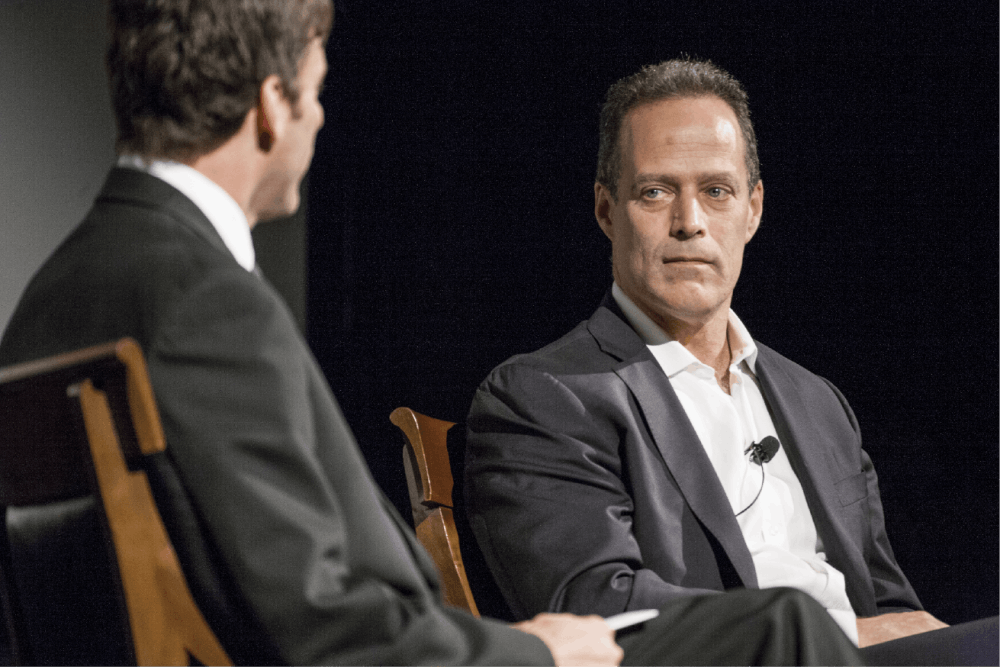Sebastian Junger discussed the documentary “Hell on Earth: The Fall of Syria and the Rise of ISIS,” which he wrote, narrated and co-produced and co-directed with Nick Quested, following a screening of the film Tuesday at the Watson Institute for International and Public Affairs. “Hell on Earth” focuses on Syria’s descent into civil war and the rise of ISIS. The discussion centered on the making of the documentary, how the civil war might have been avoided and the possibility of a similar conflict occurring in the United States.
Because filming for “Hell on Earth” began at a time when entering Syria was “a death sentence,” Junger and his colleagues sent cameras to Syrians still inside ISIS territory, he said, adding that refugees fleeing to Turkey and groups fighting inside Syria “self-documented” their experiences.
Junger and his colleagues also conducted interviews in the Kurdish areas of Northern Iraq, “which were actually, for a war zone, fairly safe,” he said. ISIS material included in the film — such as propaganda and raw footage — was accessed online through a “backdoor portal,” he added.
The civil war occurred because Syrian President Bashar Hafez al-Assad was forced to choose between implementing democratic reforms, which Junger said would have eventually resulted in his death, and fighting against those who demanded reforms. At this juncture, a “third option” offered by the international community to Assad or a leader in a similar position might have forestalled the outbreak of war, he added.
This third option would theoretically allow the leader to step down and enter exile in a country of his choice while guaranteeing the protection of his family and the preservation of a certain amount of his material wealth, Junger said. “At that point, I don’t care about justice, I care about human life,” he added. “There’s no devil worse than 500,000 dead.”
When the leader abdicates, a stabilization force comprised of international representatives could enter the country and “introduce democratic processes” by setting up “a representational government that includes all the different interests,” Junger said.
“It might not work, … but it also might work,” he added. “If the alternative is civil war, unfortunately we are forced to contemplate some pretty extreme remedies.”
The Syrian civil war could continue for as long as 50 years, Junger said.
A similar conflict in the United States is unlikely because “in a Western democracy, there is legal recourse,” Junger said. “The reason people take to the streets in countries like Syria … is because they actually don’t have other recourse,” he added. “They cannot petition the government legally, they cannot bring a case to court, they cannot charge their politicians with corruption and see them go to jail.”
During President Trump’s tenure, which Junger described as “an attack on our democracy,” opponents of the administration have fought through legal processes and “in court rather than on the streets with guns,” he said.
The Trump presidency “has triggered responses that are enormously democratic,” Junger added. “It’s like an immune system in the democracy that is counterattacking the attack.”
Because of the American media’s preoccupation with Trump’s activities, comparatively little attention has been paid to international issues such as the Syrian civil war, Junger said. “Until this country sorts itself out and lands on its feet, I don’t think international news stories are going to affect it that much,” he added. “There’s a fight at home now.”





